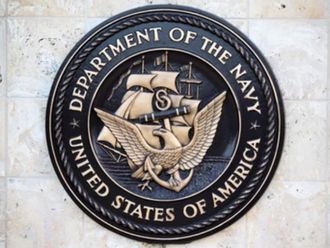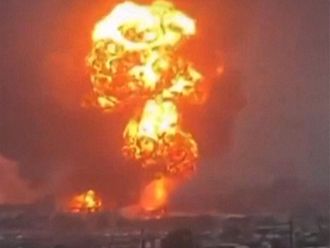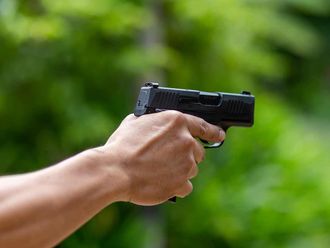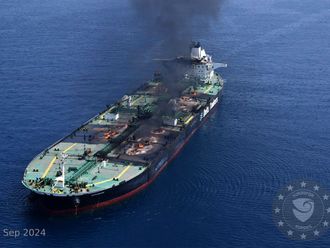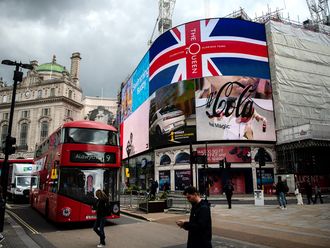Sana’a: Yemen wants more military aid to fight escalating terrorism.
This, despite the fact that Yemeni authorities have little to show for the significant amount of Western money that has already been given to the country.
In fact, the Al Qaida offshoot, which claimed responsibility for the failed plot to send mail bombs from Yemen to the US, appears more emboldened than ever. And Yemen's government seems to feel more threatened by the restless secessionist rebellion in the south, where it has little control, than by militants linked to Al Qaida in the Arabian Peninsula. Yemen is the poorest country in the Arab world and the government's authority is weak in areas outside the capital of San'a.
Since the October 28 discovery of the two mail bombs, US officials have been pressing Yemen for more cooperation on intelligence-sharing. They have also emphasised the need for Yemeni counterterrorism teams to be trained. The US defence secretary, Robert Gates, said over the weekend that the US could do more to help train Yemeni forces to combat terrorists. Last week, US officials said military aid to Yemen would double to $250 million (Dh918.10 million) in 2011, illustrating the growing threat that Al Qaida poses to the fragile country.
President Barack Obama told President Ali Abdullah Saleh last week that the aid is part of a broader, more comprehensive strategy to promote security, as well as economic and political development.
But Hesham Sharaf, a Yemeni deputy minister was not happy with the amount, saying the proposed US assistance is "nothing" compared to what Yemen really needs. Government officials are now talking about a two-year programme to develop the armed forces that would cost around $6 billion, he said.
Yemen also wants to develop its coast guard and acquire more than a dozen combat helicopters, satellites and equipment such as night-vision goggles and spy ware.
"Technology like satellites should be in Yemen's hands, not images handed down to us," Sharaf said. "We must have special Yemeni forces trained to use combat helicopters, not Americans. If they (the Americans) go on the ground, people will criticise us and say we are weak."
As part of the aid package, the US provides equipment and training for Yemeni forces. But there are ongoing US concerns that Yemen could use the equipment and troops against Shiite rebels who have fought government forces intermittently for years in the north, or a separate front against secessionists in the south.
Many critics in Yemen say the aid is going to fight government opponents, particularly the southern secessionists, and that Yemen is simply milking the West for money to carry out an agenda that doesn't necessarily make fighting Al Qaida its top priority.
Soon after the mail bombs were detected, other government officials echoed Sharaf's call for more equipment and assistance to fight Al Qaida. The failed attacks exposed the government's failure to stop Al Qaida and the growing threat it poses to the regime and showed that the terrorist group is using Yemen as a base to plot international attacks.
Yemen will be expected to show how the aid has been used. In addition to asking for more intelligence cooperation, a US official said Washington also wants to have access to prisoners allegedly from Al Qaida.
A lot of Western money has already be given to Yemen's security and military agencies in the last 10 years, since Al Qaida bombers steered an explosives-laden boat into the Navy destroyer USS Cole as it was refuelling at a Yemeni port, resulting in the killing of 17 US sailors.
In the past five years, US military assistance to Yemen has totalled about $250 million. That covered programmes to train and equip Yemeni forces to combat Al Qaida, as well as buy boats and other equipment for the airport and seaports. It also paid for training of senior officers here and in the US.
About 50 elite US military experts are currently in the country, training Yemeni counterterrorism forces, a number that has doubled in the past year. At least four new security branches to combat terrorism, as well as a new anti-terrorism administration in the air force were created, with Western financing and technical support.
Some say Western assistance is going to train new forces, many of which are commanded by Saleh's eldest son, as well as other relatives, instead of supporting long serving troops.
A Yemeni coast guard service was founded soon after the USS Cole attack with US aid. A special forces unit and the National Security Agency were formed around the same time to supplement the work of the intelligence services. An anti-terrorism unit, under the Interior Ministry, was also added, and a similar anti-terrorism administration was created under the air force.
Although the US trains Yemeni special forces, Yemen frequently sends part of its regular armed forces, estimated to number about a half-million, to hunt Al Qaida militants in the south. And the new US demand for more intelligence-sharing and access to prisoners is viewed by Yemen as a move by the US to see just how US military assistance is being used.
The presence of Al Qaida in the Arabian Peninsula has grown in Yemen and has become increasingly emboldened, directing attacks both overseas and in the country, against security officials and foreigners.


